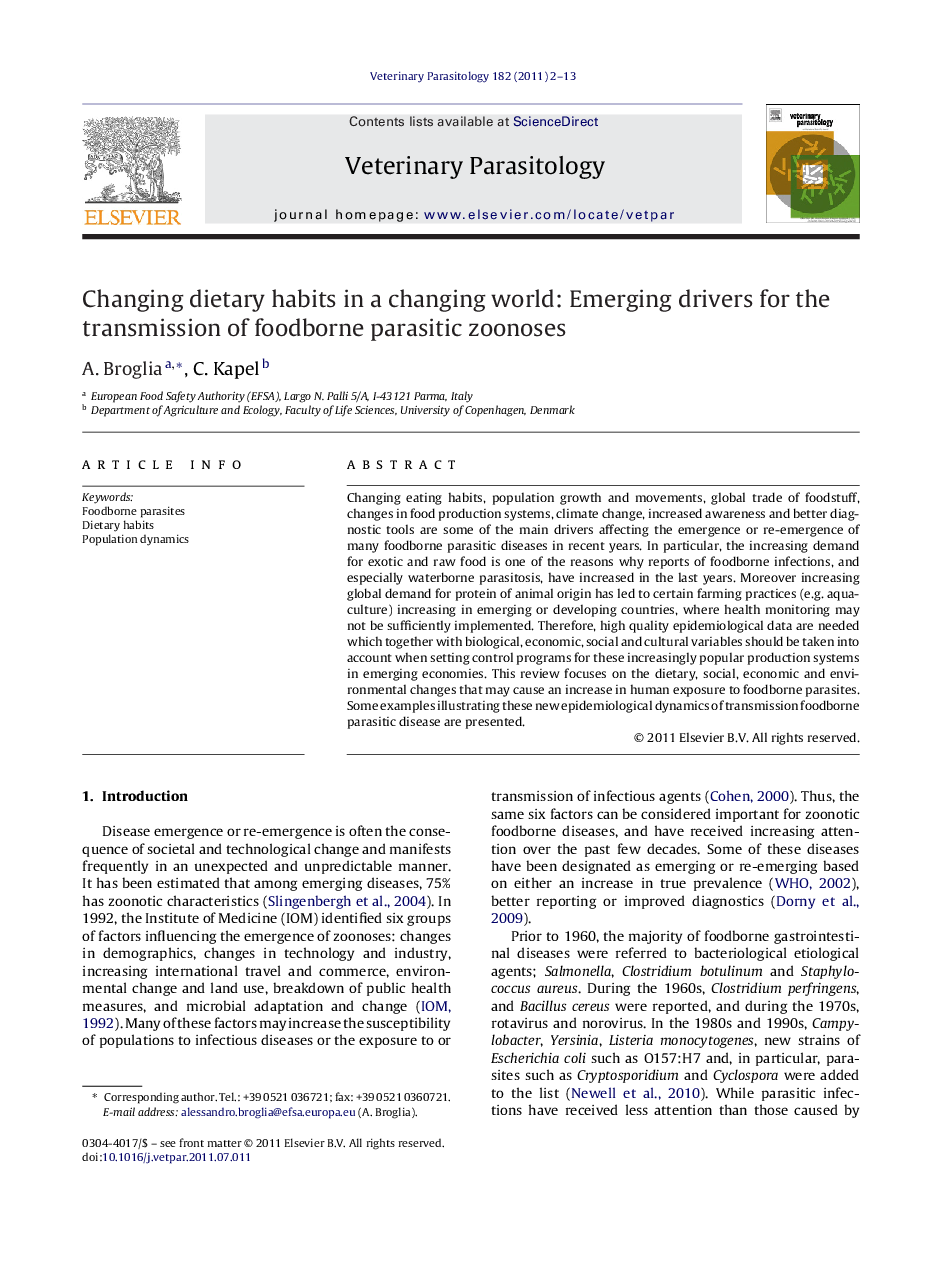| کد مقاله | کد نشریه | سال انتشار | مقاله انگلیسی | نسخه تمام متن |
|---|---|---|---|---|
| 5805685 | 1112483 | 2011 | 12 صفحه PDF | دانلود رایگان |

Changing eating habits, population growth and movements, global trade of foodstuff, changes in food production systems, climate change, increased awareness and better diagnostic tools are some of the main drivers affecting the emergence or re-emergence of many foodborne parasitic diseases in recent years. In particular, the increasing demand for exotic and raw food is one of the reasons why reports of foodborne infections, and especially waterborne parasitosis, have increased in the last years. Moreover increasing global demand for protein of animal origin has led to certain farming practices (e.g. aquaculture) increasing in emerging or developing countries, where health monitoring may not be sufficiently implemented. Therefore, high quality epidemiological data are needed which together with biological, economic, social and cultural variables should be taken into account when setting control programs for these increasingly popular production systems in emerging economies. This review focuses on the dietary, social, economic and environmental changes that may cause an increase in human exposure to foodborne parasites. Some examples illustrating these new epidemiological dynamics of transmission foodborne parasitic disease are presented.
Journal: Veterinary Parasitology - Volume 182, Issue 1, 24 November 2011, Pages 2-13